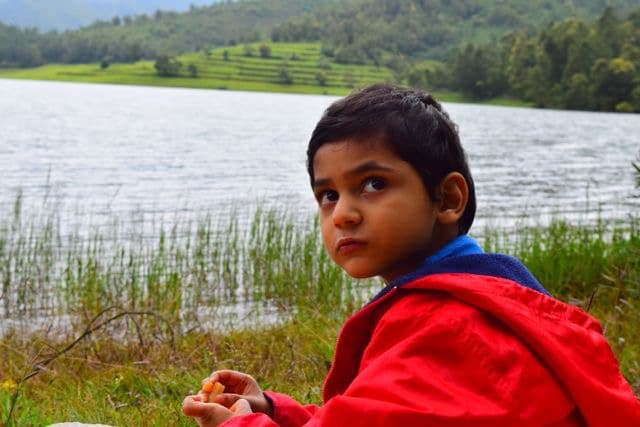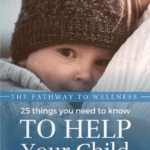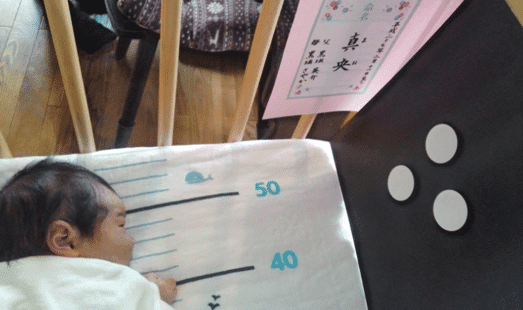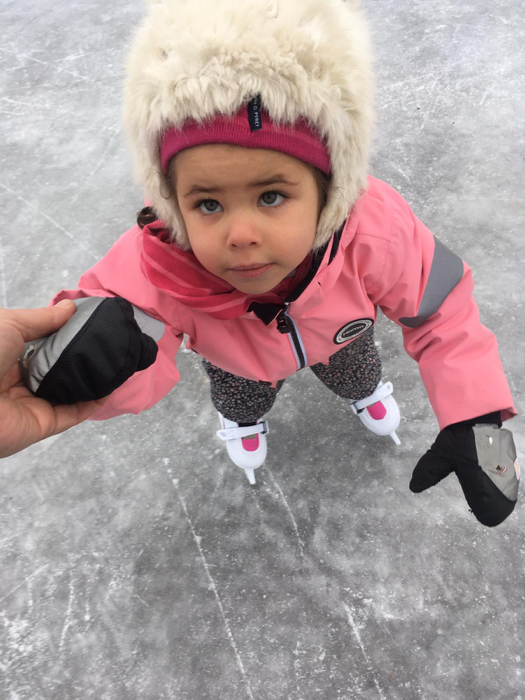300+ Labels Describe Brain-Injured Children Symptoms.
 Wed, Jan 1, 2014
Wed, Jan 1, 2014
 5 mins read
5 mins read
What is Brain Injury?
When the brain is injured, the child will either have a problem with the incoming sensory pathways or the outgoing motor pathways or both. When a child cannot see, hear or feel properly, he cannot respond to the world around him appropriately. This may be a severe problem, as it is with the child who is functionally blind, deaf, insensate, paralyzed and speechless.
This may be a moderate problem, as it is with a child who can not use both eyes together properly, lacks the fine tuning to handle the common sounds in the environment, or is too sensitive or not sensitive enough to touch and may not yet be able to move or talk or use his hands at age level.
This may be a mild problem, as it is with a child who cannot read, write or do math at age level and who may lack the balance, coordination, language and manual competence of his peers.
Misconceptions About the Brain
For too long brain growth was thought to be a static and irrevocable fact. Instead brain growth and development are a dynamic and ever-changing process.
This is a process that can be stopped, as it is in profound brain injury. This is a process that can be slowed, as it is in moderate brain injury but most significantly this is a process that can be speeded up.
All that we do to speed the process is to provide visual, auditory and tactile stimulation with increased frequency, intensity and duration in recognition of the orderly way in which the human brain grows. We then arrange for the child to have the maximum opportunity in an ideal environment to use and develop the motor pathways.
For more than a half-century, the heart of The Institutes program has been based upon the fact that the brain grows by use. Scientists now recognize the plasticity of the human brain and new research in neuroplasticity confirms that the brain is incredibly capable of recovery and rehabilitation. The old notion that once the brain is injured there is no means of recovery has been discarded.
It outlines what you need to know, what to do, and what not to do in the areas of mobility, intelligence, communication, social growth, nutrition, environment, and medication.
25 Things to Help Your Children – FREE RESOURCE
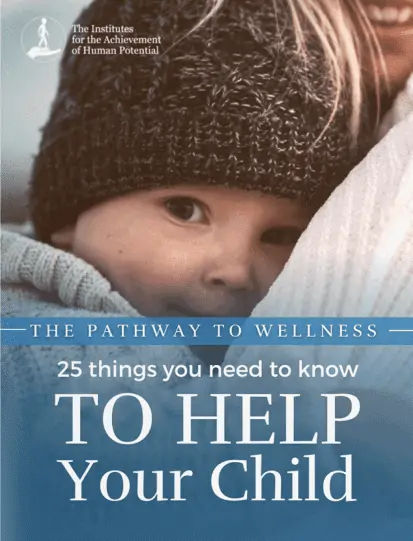
The 25 Things You Need to Know to Help Your Child PDF helps parents and professionals like you who seek answers to the problems facing their brain-injured child.
It outlines what you need to know, what to do, and what not to do in the areas of mobility, intelligence, communication, social growth, nutrition, environment, and medication.
The Symptoms of Brain Injury
When the brain is injured there may be dozens of symptoms of that injury. This makes sense because the brain runs everything. When the brain is disorganized, this may result in symptoms that range from frightening (seizures, rigidity, serious illness, failure to thrive) to bizarre (screaming, repetitive actions, biting, smelling, and tasting inappropriately) to a hundred other symptoms that may seem odd, funny or simply inexplicable.
Many brain-injured children are given a diagnosis based upon these frightening or bizarre symptoms rather than a diagnosis based upon a careful evaluation of the brain. A symptomatic diagnosis can lead to the attempt to treat the symptom while ignoring the underlying problem that resides in the brain itself.
No matter how strange or hard to fathom a symptom may be, there is always a reason for that symptom. Once parents know how to evaluate their own child and they understand their child’s Developmental Profile, many of these inexplicable symptoms make sense. When the brain is provided with appropriate stimulation and opportunity, these symptoms start to lessen or even disappear.
300+ Labels Describe Brain-Injured Children Symptoms
Is your child brain-injured? These are the most common labels for brain-injured children:
- Autistic
- Cerebral Palsy
- Developmental Delay
- Traumatic Brain Injury
- Attention Deficit Disorder
- Epileptic
- Mentally retarded
- Learning Problems
- Special Needs
- Other Symptomatic Labels
If your child has been given a diagnosis, and you are unsure if your child is brain-injured, contact us here. We are here to help you.
Historically, children diagnosed with autism, developmental delay, cerebral palsy, attention deficit disorder, hyperactivity, learning problems, dyslexia and a host of other symptomatic diagnoses have been considered hopeless. There are more than 300 different labels that are commonly used to describe brain-injured children.
The vast majority of these labels are not proper diagnoses, but rather they are descriptions of the symptoms of brain-injured children.

To be successful one must treat the brain, where the injury actually exists.
The Causes of Brain Injury
Unfortunately there are many ways that a good brain can get hurt. We see the child who is hurt in utero because of some injury or illness that mother may have experienced as the baby was developing (trauma, Rh incompatibility, German measles, hydrocephaly, drugs, alcohol). Sometimes mother is aware of an injury or illness, but often problems may occur in the first nine months that are not apparent to mother or her physician (hydrocephaly, oxygen deprivation).
Sometimes an injury may occur immediately before delivery (premature, postmature), during delivery (compression of the umbilical cord, placenta previa, placenta abruptia, prolonged, precipitous, or delayed, C-section), or right after the delivery (respiratory distress, jaundice, seizures, cardiac arrest, stroke) of the baby.
Some children may have an illness (encephalitis, meningitis, Lyme disease, chicken pox, measles), surgical complications (cardiac arrest, oxygen deprivation, blood loss, septic shock), reaction to medication (antibiotics, vaccines, anticonvulsants, aspirin, non steroidal anti-inflammatory agents) or a head injury (falls, car accidents, sports concussions, near drownings, gun shots, explosions), or an adult illness (stroke, Parkinson’s disease) that injures the brain.
Some genetic problems cause injury to the brain (Down syndrome, Angleman syndrome, Cri de Chat, Wolf-Hirchhorn, Miller-Dieker syndrome, Pallister-Killian syndrome, Dandy-Walker syndrome, etc). The Institutes does not treat genetic problems, but children who have such problems are also brain-injured. They have the same chance of improvement that other hurt children have. For many of these children their neurological problems are more significant than their genetic differences.
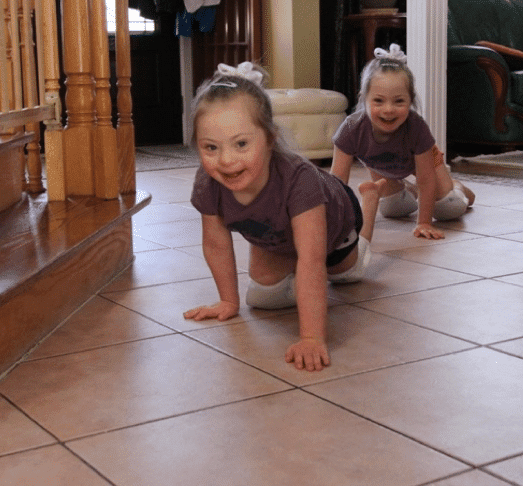
Read more on the results of our programs for children with Down syndrome.
Other children may have excess fluid in the brain (hydrocephaly), a brain tumor or a blood clot (hematoma) or craniostenosis. These conditions require neurosurgical intervention. Commonly these conditions will be handled before a child is seen at The Institutes. If these conditions have not yet been discovered, or diagnosed, before a child comes to The Institutes, such intervention will be recommended.
Sometimes a child may have a progressive deterioration of the brain.
The Institutes does not have a treatment program for progressive brain disease. The case of each of these children is reviewed with great care to determine if The Institutes can offer help to improve the quality of the child’s life with this brain injury information. To speak with one of our staff members about your child please fill out this form.
Some children may have diseases that do not originate in the central nervous system but instead originate in the peripheral nervous system (spinal cord injuries, polio, muscular dystrophy). The programs of The Institutes cannot help children with these problems.
It matters not what may be the initial insult that begins the process of injury to the brain; the penultimate fact will be a decrease of oxygen to the brain. Oxygen is the primary food of the brain. If oxygen is cut off or decreased for any reason, the brain will suffer.
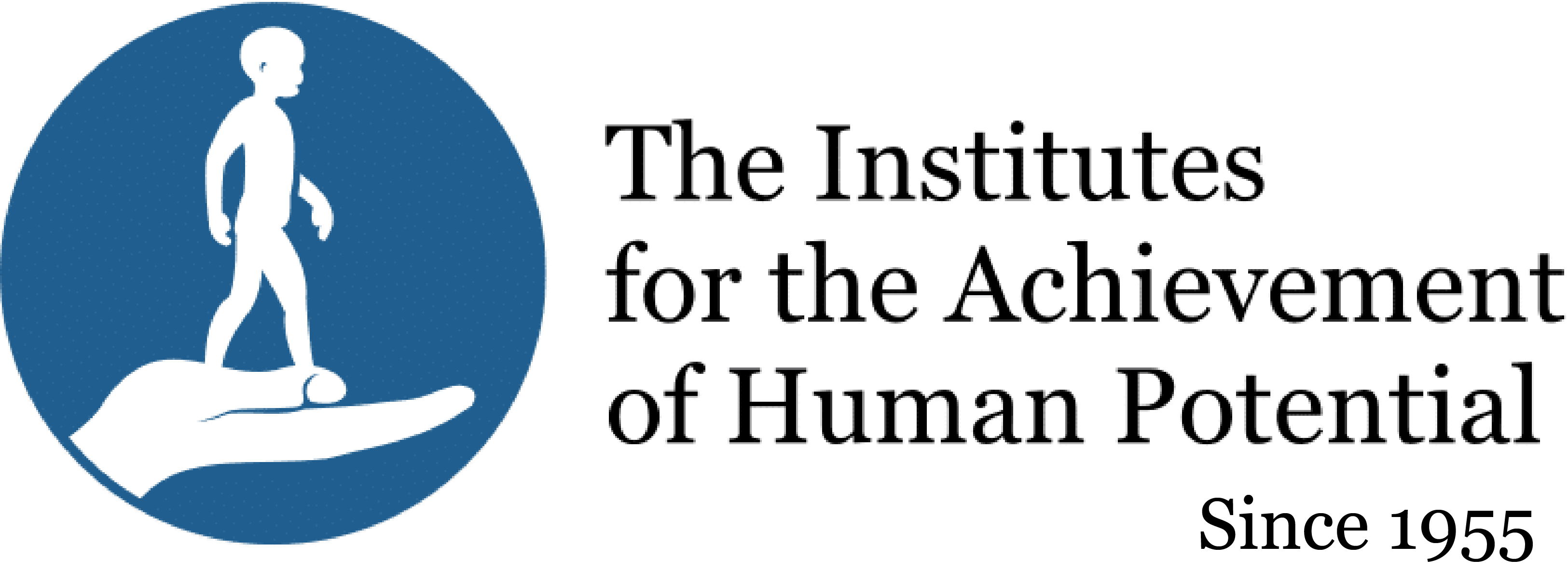
 Donate
Donate
